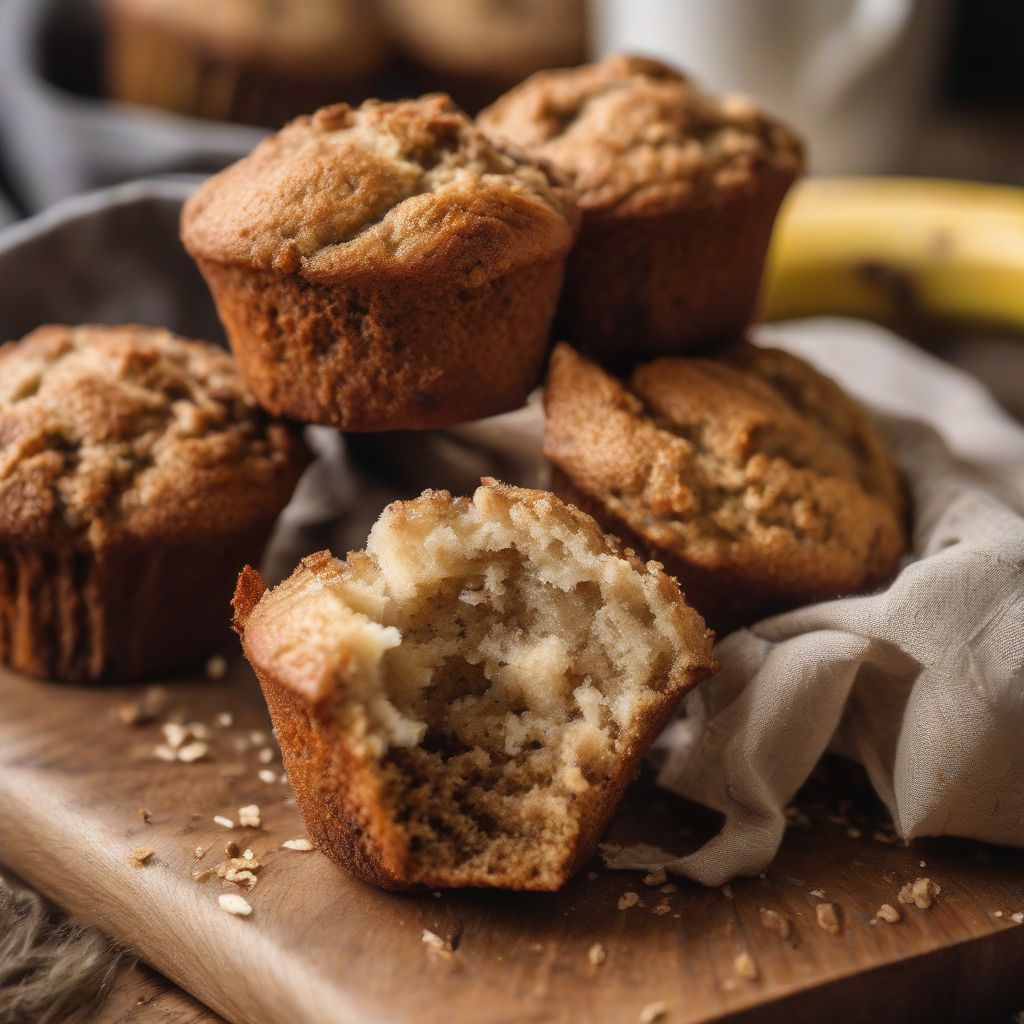Do you dream of indulging in delicious baked goods without the guilt? Imagine biting into a moist, flavorful cake or a warm, chewy cookie, knowing it’s not sabotaging your healthy eating habits. It’s entirely possible to bake with less fat and MORE flavor! For years, I’ve helped people achieve their health goals through smart meal prep, and baking is no exception. Let’s unlock the secrets to creating healthier, tastier treats that will satisfy your sweet tooth and nourish your body.
Understanding Fat’s Role in Baking
Before we dive into the how-to, let’s understand why fat is used in baking in the first place. Fat contributes to the texture, moisture, and overall deliciousness of baked goods. It provides tenderness, creates a flaky crust, and helps carry flavors. However, too much fat can lead to excess calories and unwanted health consequences.
Smart Swaps for Reducing Fat
The good news is that you can significantly reduce fat in your baking without sacrificing flavor. Here are some clever substitutions that work wonders:
Applesauce for Oil
Unsweetened applesauce is a fantastic replacement for oil in many recipes, especially cakes and muffins. It adds moisture and a subtle sweetness. Start by substituting half the oil with applesauce and adjust to your liking. “In my cookbook, ‘Healthy Baking Made Easy,’ I recommend using applesauce for a naturally sweet and moist texture,” says renowned baker, Emily Carter (fictional).
Greek Yogurt for Butter
Plain, non-fat Greek yogurt is a protein-packed alternative to butter or oil. It adds moisture and a tangy note that complements many baked goods. Use a 1:1 ratio for substitution, keeping in mind it might slightly alter the final texture.
Mashed Banana for Butter
Similar to applesauce, mashed ripe bananas can replace butter in recipes like muffins, quick bread, and some cakes. They provide natural sweetness and moisture, adding a subtle banana flavor.
Pureed Pumpkin or Sweet Potato
For a boost of nutrients and a moist crumb, try pureed pumpkin or sweet potato. They work well in muffins, cakes, and even some cookies, adding a delightful earthiness.
Enhancing Flavor Without the Fat
Reducing fat doesn’t mean compromising on flavor. Here’s how to boost the taste of your healthy baked goods:
Embrace Spices
Cinnamon, nutmeg, cloves, ginger – these aromatic spices add depth and complexity to your baking. Experiment with different combinations to create unique flavor profiles.
Citrus Zest
The zest of lemons, oranges, or limes adds a vibrant, refreshing burst of flavor. A little goes a long way!
Extracts and Flavorings
Vanilla, almond, peppermint – extracts add concentrated flavor without adding fat. Use them sparingly to enhance the overall taste.
Fresh or Dried Fruit
Adding fruits like berries, apples, or raisins not only boosts the nutritional value but also adds sweetness and texture.
Baking Techniques for Lower Fat Recipes
A few tweaks to your baking techniques can further enhance the results of your lower-fat recipes:
Proper Mixing
Avoid overmixing the batter, as this can develop gluten and make the final product tough.
Oven Temperature
Ensure your oven is calibrated correctly and preheated to the specified temperature. Even baking is crucial for success.
Baking Time
Check for doneness a few minutes before the recommended baking time, as lower-fat recipes might bake slightly faster.
Sample Recipe: Low-Fat Banana Muffins
Here’s a simple recipe to get you started:
- 2 ripe bananas, mashed
- 1 egg
- 1/4 cup milk
- 1 teaspoon vanilla extract
- 1 1/2 cups whole wheat flour
- 1/2 cup rolled oats
- 1/4 cup brown sugar
- 1 teaspoon baking powder
- 1/2 teaspoon baking soda
- 1/4 teaspoon salt
Combine wet ingredients, then dry ingredients. Mix together until just combined. Bake at 375°F for 15-20 minutes.
 Low-Fat Banana Muffins
Low-Fat Banana Muffins
Beyond the Basics: Exploring Flour Alternatives
Looking to further enhance the nutritional profile of your baked goods? Experimenting with flour alternatives like almond flour or coconut flour can create unique textures and flavors while reducing overall carbohydrate content. This adds a new dimension to “How to bake with less fat and more flavor.” For tips on cooking healthy meals affordably, check out this resource: Tips for Cooking Healthy Meals on a Budget.
Chia Seeds for Extra Boost
Don’t underestimate the power of chia seeds! These tiny nutritional powerhouses are excellent in baking. Discover more about their benefits in this article: Why Chia Seeds Are a Superfood for Energy. They add moisture and a slight nutty flavor while boosting the fiber and omega-3 content. Consider incorporating them into your muffins, breads, or even cookies.
Conclusion
Baking with less fat and more flavor is not only possible but also incredibly rewarding. By embracing smart ingredient swaps, enhancing flavors with spices and extracts, and mastering a few baking techniques, you can create delicious and healthy treats that nourish your body and delight your taste buds. Remember, baking is a journey of experimentation. Don’t be afraid to try new things and adapt recipes to your preferences. Now, go forth and bake some healthy and delicious masterpieces! Share your experiences and favorite low-fat baking tips in the comments below!



